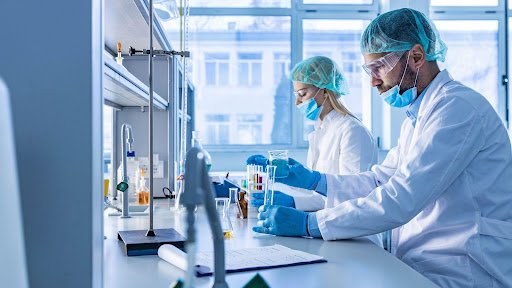Clinical or medical laboratories are institutions where chemistry is mixed with biology to determine a patient’s health status. They may evaluate blood, study DNA cells, or examine tissues. Professionals who work in a laboratory also research and develop procedures that help doctors make earlier and more accurate diagnoses.
Whether you’re thinking about opening a clinical laboratory or applying as a labotarian in one, you need to do your due diligence. This includes submitting fingerprints for an entire state and national criminal background check. FEFPS is an FDLE-approved fingerprinting center and provides convenient, affordable, and quality services to AHCA providers.
What is a clinical laboratory?
Clinical laboratories are centers where tests are performed on various clinical specimens. These tests provide laboratories with information about a patient’s health that helps diagnose, treat, and prevent disease. These centers vary in size and complexity and offer various testing services to citizens.
Here are a few examples of laboratory tests that a clinical laboratory performs.
- Identification of the type of bacteria or viruses causing an infection
- Detection of abnormal cells that may cause different types of cancer, like leukemia
- Analysis of cardiac enzyme activities that are released during a heart attack
- Detection of DNA markers that may cause genetic diseases
The laboratory technicians who work in these centers ensure the significance of these laboratory tests and evaluate the new methods and their effectiveness.
Types of clinical laboratories in Florida
These clinical laboratories contribute to the health of Florida, one test at a time. There are different types of labs you can set up in the state.
1. Diagnostic Laboratory:
Diagnostic laboratories run tests on samples to get more information about the diagnosis, diseases, and other treatment plans. Lab technicians working in these centers can test urine, blood, cell, tissue samples, and other forms of organic matter. Their main goal is to better understand the patient’s symptoms through these tests.
With the help of these tests, professionals learn more about the causes, symptoms, and viable disease treatments. The tests run in these diagnostic labs are usually high-end and specialized. They’re mainly used when follow-up tests are needed to verify the test results further.
2. Pathological Laboratories:
These laboratories work in coordination with the doctors to assess disease in patients. Most people are familiar with these laboratories as they conduct drug tests for job positions. These labs are located in patient care facilities. This makes it easier for doctors to get results.
There are two different types of pathological laboratories – anatomic and clinical. Anatomic pathology studies diseases by examining tissue samples with high-powered microscopes. On the other hand, a clinical pathology lab examines body fluids and diagnoses the disease.
3. Mobile Laboratories:
A mobile clinical laboratory is something like a food truck for medical testing. These trucks perform necessary tests in hard-to-reach areas or after natural disasters. Mobile labs are also helpful for people who suffer from specific disabilities and cannot go to a hospital for tests.
Establishing a clinical laboratory
If you are considering starting a clinical lab, you must be prepared for the business. You are creating a business plan, getting a place for the establishment, and sorting out the licensing procedure.
Creating a Business Plan :
The first step towards starting your lab is to create a business plan. The summary is an essential part of the business plan because it lays out your experience and background and the decisions that led you to start your business. The executive summary also outlines why your business idea will be successful. If you’re seeking funding, the summary is your first opportunity to pique a potential investor’s interest.
The business plan includes the following:
- Executive Summary
- Description of the company
- Market analysis
- Organization and management
- Marketing and sales management
- Funding application
Establishment of the business structure:
Whether the business structure of your clinical lab is an LLC, sole proprietorship, partnership, or corporation, there are long- and short-term legal and tax implications that you must consider. Therefore, seeking legal and tax advice before deciding on your final business structure is advisable.
The financing of the laboratory:
Many entrepreneurs finance their clinical lab from their funds or the funds of friends and family. This startup funding pays for lab rent, lab furnishings, staff and consultant salaries, administrative costs, and other expenses such as insurance, legal counsel, and accounting.
Getting the appropriate licenses:
The next step in establishing a testing laboratory is to obtain a license from the AHCA. In 1993, the State of Florida passed legislation requiring all facilities, including the doctor’s offices that perform clinical testing, to obtain a license under the statute.
You must apply for a non-waived license for your center and may only perform tests authorized in the permit. Your lab may be subject to fines and penalties if you perform tests outside your licensure. There are four types of certificates offered by CLIA.
- Certificate of Waiver: The certificate is issued to laboratories that wish to perform just the waived tests in their center.
- Certificate of Compliance: This type of certificate is issued to clinical centers when an inspection has determined that the laboratory complies with all applicable CLIA requirements.
- Certificate of Provider-Performed Microscopy Procedures: The laboratories can perform all the waived tests with this certificate. Along with this, a physician or a practitioner can also perform microscopy procedures.
- Certificate of Accreditation: This certificate is issued to a laboratory based on the center’s accreditation. It’s issued by an organization approved by the Centers for Medicare and Medicaid.
When filing your application for the clinical laboratory license, you should ensure that you have correctly entered your tax ID numbers. Your physical location for the laboratory should also be ready for a survey before you submit your license application.
Along with all of this, you will also have to submit your Level 2 national and state criminal record. This is a required document for all AHCA providers. You can get your criminal background report by submitting your fingerprints to an FDLE-approved fingerprinting center.
FEFPS is a veteran-founded FDLE- approved center that provides high-quality livescan fingerprinting. We submit your fingerprints to FDLE on the same day. The report is generated and forwarded to the center while your license application is being reviewed.
Hiring Service Providers for your Clinical Laboratory:
Once your clinical laboratory is ready and licensed, you’ll need professionals to help you perform the tests. When hiring lab technicians, ensure they’re adequately qualified and know the procedures. This would shorten your training period.
You must also provide your hired employees’ Level 2 national and state criminal history records. Per the requirements established by the AHCA, all providers come into contact with the state’s vulnerable population. The Background Screening Unit reviews Level 2 criminal record results for all background screenings submitted as part of the employment process for a healthcare provider for participation in Florida’s Medicaid program.
Following Florida statute, you must renew all fingerprints retained by FDLE every five years to maintain eligibility for your clinical laboratory staff employment.
You can choose FEFPS to provide these services for your employees. Our veteran-led service provides high-quality fingerprinting at an affordable price. We submit all fingerprints to FDLE on the same day. However, it can still take up to 3 days for the report.







